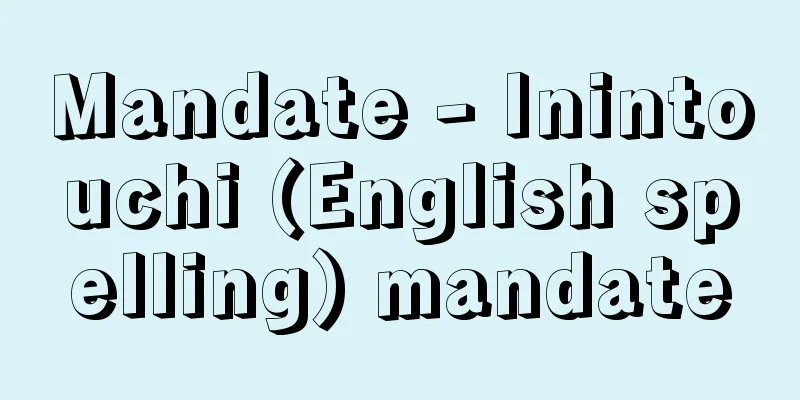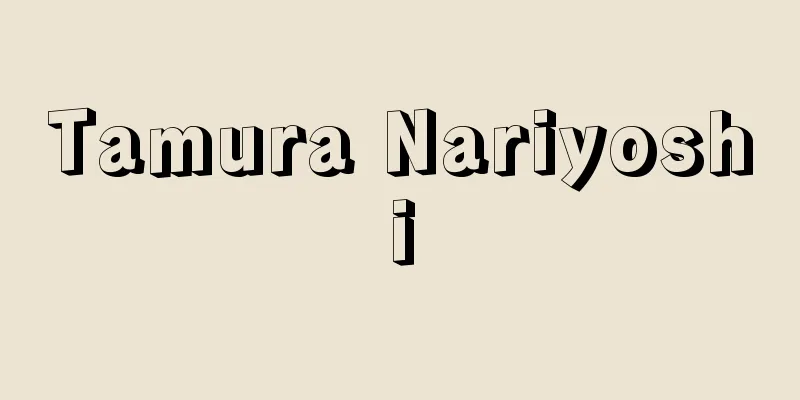Mandate - Inintouchi (English spelling) mandate

|
A colonial governance supervision system established by the League of Nations. After World War II, it was succeeded by the United Nations trusteeship system. Until the beginning of the 19th century, colonies were governed completely freely by the administering powers, but from the middle of the 19th century, treaties aimed at protecting the indigenous peoples were gradually concluded. However, since these treaties were implemented mainly from the viewpoint of protecting the administering powers' own interests, it was necessary to monitor their faithful implementation. For this reason, the mandate system was established. This system was divided into three types, A, B, and C, depending on the level of development of the colonial people, but in all areas, the administering power was obligated to allow the residents freedom of conscience and religion, and to prohibit vices such as the trade of slaves, arms, and alcohol. The administering powers were then supervised by the League of Nations in their implementation of these obligations through means such as the review of annual reports. However, this system was limited to the territories that had been separated from the defeated nations of Germany and Turkey as a result of World War I, and these territories were administered by the victorious nations of Great Britain, France, Belgium, and Japan as mandated nations on behalf of the League of Nations. Thus, it cannot be denied that the purpose of establishing the Mandate system was to conceal the intention of the victorious nations of World War I to re-divide colonies. However, this marked the first time in history that international supervision of colonial governance was realized, and it marked a major step forward in the protection of indigenous peoples. [Taijudo Kanae] [Reference] |Source: Shogakukan Encyclopedia Nipponica About Encyclopedia Nipponica Information | Legend |
|
国際連盟が設けた植民地統治の監督制度。第二次世界大戦後、国際連合の信託統治制度に引き継がれた。19世紀の初めまで、植民地は施政国がまったく自由に統治していたが、19世紀の中ごろから、原住民保護を目的とした条約がしだいに結ばれるようになった。しかし、これらの諸条約は主として施政国自身の利益保持の観点から実施されたため、その誠実な履行を監視する必要があった。このため設けられたのが委任統治制度である。この制度は、植民地人民の発達の程度に応じて、A、B、Cの三方式に分けられたが、いずれの地域においても、施政国は住民に対して、良心および信教の自由を認めることと、奴隷売買や武器、酒類の取引などの悪習を禁止することが義務づけられた。そして施政国は、年報の審査などの手段により、この義務の履行について国際連盟の監督を受けた。ただし、この制度のもとに置かれたのは、第一次大戦の結果、敗戦国ドイツおよびトルコから分離された地域に限られ、それをイギリス、フランス、ベルギー、日本などの戦勝国が、国際連盟にかわり受任国として統治することとされたのである。このように、委任統治制度の設立には、第一次大戦の戦勝国による植民地再分割の意図を隠蔽(いんぺい)しようとする目的があったことは否めない。しかし、これによって史上初めて植民地統治の国際的監督が実現したのであり、原住民の保護は大きく前進することになった。 [太寿堂鼎] [参照項目] |出典 小学館 日本大百科全書(ニッポニカ)日本大百科全書(ニッポニカ)について 情報 | 凡例 |
<<: Commission of Attorney - Inin Meirei
>>: Power of attorney - Ininjo
Recommend
Huxley, AF (English spelling) HuxleyAF
…J. Bernstein explained that this change in poten...
Lifespan
…They are also called trace fossils. The German w...
Logos (Greek)
One of the basic words in ancient Greek philosoph...
ephelides
…Medically known as ephelides, these irregularly ...
Theravada (English spelling)
One of the sects that has existed since early Budd...
Sri Paramesvara Deva Shah
...The Thai army, based in Nakhon Si Thammarat in...
Qin Hui - Shinkai
A politician from the Song dynasty, China. His co...
Horned frog - Horned frog (English spelling)
A general term for frogs belonging to the genus Ce...
Sidon
An ancient Phoenician city-state on the Mediterran...
Iizuna (rope) faith - Iizuna faith
… [Nakamura Saburo] [faith] The mountain that ens...
Utairiku Kannonkyo - Utairiku Kannonkyo
This is a Naniwabushi play. Based on the story of ...
Convulsion
…The term convulsion has a very broad meaning and...
Pacific League
Together with the Central League, this is one of t...
uncinate fit
...In Japan, the following three different states...
Intrahepatic bile duct
…It is a bile drainage duct between the liver and...









